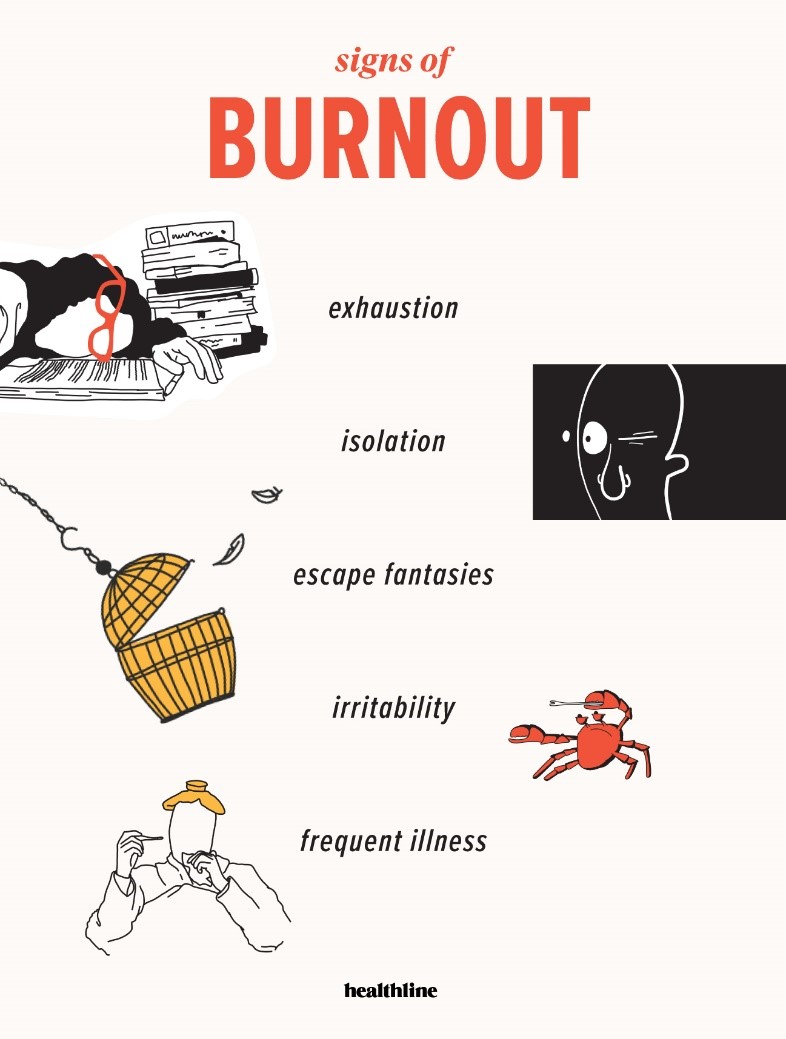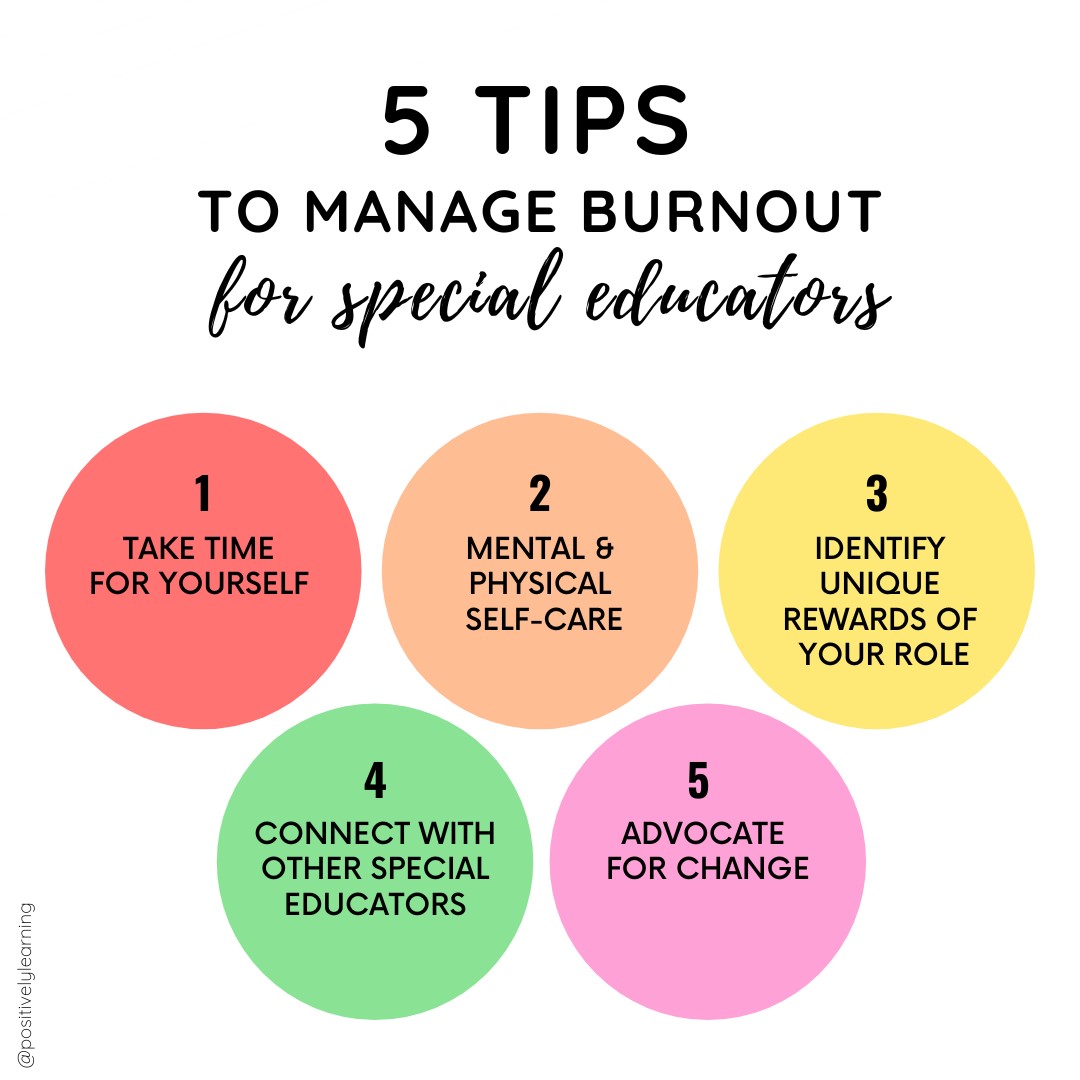Exhausted Writing IEPs? Here Are 4 Warning Signs And Ways To Prevent Fatigue
27th February 2023

As a special needs educator, writing Individualized Education Plans (IEPs) is a crucial component of your job. Combined with unruly students, difficult parents and lack of time and resources are enough to make you leave your job without batting an eye. Moreover, when this happens, it can be challenging to find the inspiration to create meaningful IEPs for your students.
So, is teacher burnout really the one to blame?
Well, let's spot some of the concerning reasons for teacher fatigue and look for ways to prevent this from happening altogether.
What Is Teacher Burnout? 4 Symptoms
For educators, burnout can be as simple as Monday blues, Sunday night anxiety, or even the dread of preceding the upcoming work week. While this might sound unreal to many, special education teachers can definitely agree with this. Besides research reveals that teaching is one of the most stressful professions on the planet as they are solely responsible for creating all other occupations in the world.

Therefore, let us explore the symptoms of teacher burnout and what can be done to prevent it.
- Emotional Exhaustion
Teachers suffering from this condition feel emotionally drained, overwhelmed, and unable to cope with their daily workload. They may feel like they are constantly putting out fires and dealing with crisis after crisis, leaving them little time to recharge and recuperate. This emotional exhaustion can manifest as feelings of sadness, anxiety, or even depression. Teachers may also feel like they have lost their passion for teaching, which can be disheartening and demotivating.
- Depersonalization
Depersonalization is another symptom of teacher burnout. This occurs when teachers begin to feel disconnected and detached from their students and their work. They may become cynical, critical, and indifferent toward their students, which can negatively impact the learning environment. This can also result in decreased job satisfaction, which can further exacerbate feelings of burnout.
- Reduced Professional Efficacy
Reduced professional efficacy is another symptom of teacher burnout. Teachers experiencing this symptom may feel like they are no longer effective in their roles and that their efforts are not making a difference. They may feel like they are not meeting the needs of their students or that their teaching methods are not effective. This can lead to a sense of hopelessness and a lack of motivation to improve their teaching skills.
- Physical Symptoms
Teacher burnout can also have physical symptoms. Teachers experiencing burnout may suffer from headaches, stomach problems, or other physical ailments. They may also experience fatigue and sleep disturbances, which can further exacerbate their emotional and mental exhaustion.
5 Ways To Prevent Teacher Burnout While Writing IEPs

Here are some tips to help you get back on track and rekindle your passion for writing IEPs.
- Start Early And Set Realistic Goals
Teachers should set realistic goals and expectations for themselves and their students. Unrealistic goals can lead to feelings of failure and inadequacy, which can contribute to burnout. Teachers should also prioritize their workload and focus on what is most important.
The more time you give to yourself, the easier it is to manage the caseload. Moreover, don’t forget to take a break when you are feeling burned out. Taking a step back from your work can help you recharge and gain a fresh perspective. You can use this time to do things that you enjoy or spend time with loved ones. Taking a break can also help you clear your mind and allow new ideas to come in.
- Collaborate With Gen Ed Teachers
Collaborating with other teachers can help you overcome burnout. Brainstorming and bouncing ideas off each other can help you come up with new and creative IEPs. Additionally, you can divide up the workload or take turns writing IEPs for specific students. This can help alleviate the stress of writing IEPs and make the process more manageable.
Furthermore, working with them will not let you lose sight of why you started in the first place. Take some time to reflect on your purpose and why you decided to become an educator. Remind yourself of the impact you're making in your student's lives and how your work is essential. This can help you regain your motivation and inspire you to continue writing IEPs.
- Create Boundaries
Let work stay at work and create boundaries between your professional and personal lives. This can include setting aside time for family and friends, engaging in hobbies and activities outside of work, and disconnecting from work-related communication outside of work hours.
Additionally, seek support when you feel things are getting way out of hand. It's okay to admit that you need help or support when you're feeling burned out. Reach out to your colleagues, supervisor, or other professionals for guidance and support. If you feel like you need more help, consider seeking professional counseling or therapy.
- Reflect On Your Purpose
Switch up your routine Sometimes, burnout can occur when we feel stuck in a routine. Try changing up your routine by trying new things. For example, you can try writing IEPs in a different setting or at a different time of the day. You can also try new tools or software to help you write IEPs. A change in routine can help break the monotony and spark new ideas.
Focus on the positives as when we're burned out, it's easy to focus on the negatives. Instead, try focusing on the positives. Reflect on the IEPs you've written in the past that have had a significant impact on your students. Focusing on the positives can help you regain your motivation and inspire you to continue writing IEPs.
- Practice Self-Care
Self-care is essential for preventing burnout. Teachers need to take care of their physical, emotional, and mental health. This can include taking breaks during the day, getting enough sleep, eating a healthy diet, and engaging in physical activity. Teachers can also benefit from mindfulness and relaxation techniques, such as yoga and meditation.
On top of that, you can also consider attending professional development can help you overcome burnout by providing you with new skills, knowledge, and ideas. Additionally, it can help you connect with other educators and learn from their experiences.
Bring Back The Happiness You Missed
If you are drained, you are not alone! Burnout is a common experience for educators, especially when it comes to writing IEPs. However, there are several ways to overcome burnout and reignite your passion for writing IEPs. Remember, it's okay to feel burned out, but it's essential to take steps to overcome it and prioritize your well-being. However, if you are just setting foot into the world of special education, consider pursuing Online Special Education Courses to learn about the challenges that you might face and manage your time better.

